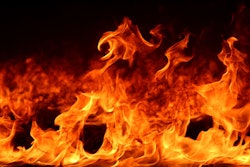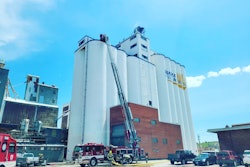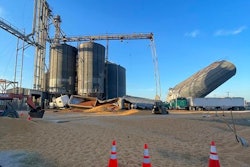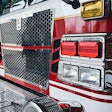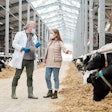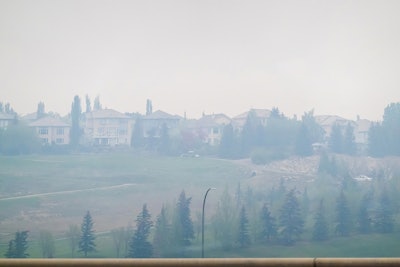
Wildfires once again made headlines in the U.S. in recent weeks as smoke from fires in Canada cast an apocalyptic pall across much of the northeastern U.S., including portions of the Corn Belt. The smoke has since cleared in the wake of some refreshing storms, but it’s unlikely to be a one-time event.
And as a warming climate drives increasingly severe fires, animal producers may not be equipped to mitigate the potential impacts to their livestock, according to Angela Green-Miller, an associated professor at the University of Illinois Urbana-Champaign who focuses on animal welfare and housing.
“The imminent risk of the smoke has cleared for the moment, but we don’t know what is going to happen and if we are going to have another wave of it,” she said. “So it’s a good exercise to think about what we experienced and what we can do to prepare in case we get another round of it.”
Although some animal producers have installed air filtration systems in their barns — mostly for the purpose of disease control — this is far from commonplace, Green-Miller said. That means that indoor and outdoor livestock could be affected by smoke from wildfires. Limited research on the effects of wildfire smoke means it’s unclear what other tools may help mitigate the impact of these smoke events, she said.
There is some evidence, however, that wildfire smoke may affect production animals. In one study from Idaho, dairy cows exposed to a week-long wildfire smoke event in 2020 produced less milk throughout the week, and during the days that followed.
While it’s still unclear exactly why wildfire smoke affects milk production, Green-Miller said it’s possible that animals simply need to divert more internal resources to coping with stress when exposed to smoke. Wildfire smoke may compromise the immune system, leaving animals more susceptible to infection, or it may lead to animals feeling more stressed and fearful because smoke, in general, means fire.
Wildfire smoke may also exacerbate the effects of other stressors, such as heat stress or illness. So producers should take care during smoke episodes to ameliorate potential sources of stress they can control, Green-Miller said. That means checking to ensure that animals have access to adequate food and water at all times, and trying to avoid moving or transporting them, if possible, in heavy smoke.
Though it may be tempting to shut down ventilation during smoke events, Green-Miller said producers should maintain good ventilation to avoid the buildup of pollution indoors.
But, overall, Green-Miller said it’s difficult to know how best to respond to wildfire smoke, given the limited research on the topic. As the impact of a warming climate continues to worsen wildfires around the world, she said animal producers, industry leaders and even academia may want to add wildfire smoke to the list of future challenges they will need to address.
“If we look at the impact of heat stress on our animals at the moment, it’s equivalent to or more than the impact of disease,” Green-Miller said. “So if we say disease is a really important issue and we need tools to mitigate it, it’s safe to say we should be seeing heat stress in the same way. And if we are going to see more wildfires ... we should add that to the list as well.”


